Five ways Republican bloodbath could end
- Published
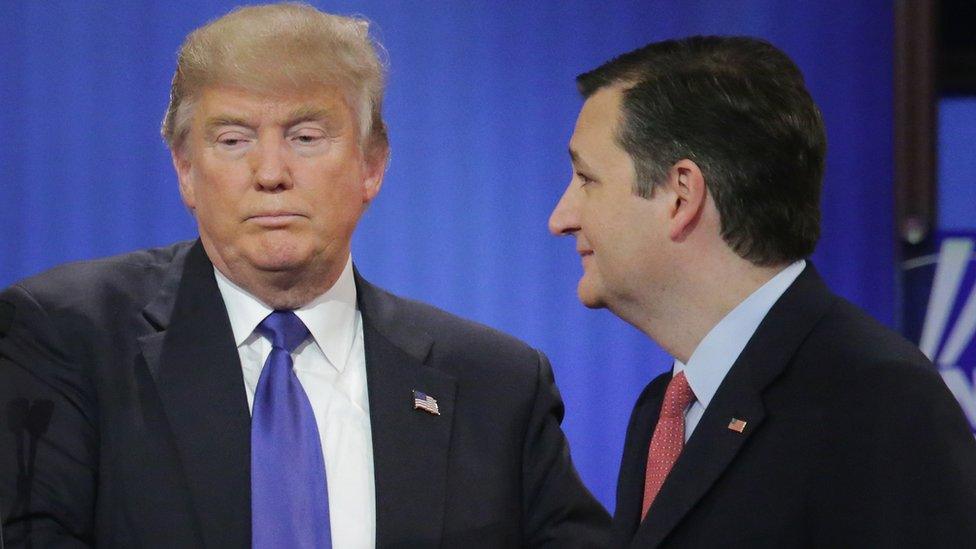
The fight for the Republican nomination seems destined to be a drawn-out slugfest that, at the absolute earliest, won't be resolved until the primary voting ends in June.
The party bloodbath could even drag on to the Republican convention in July - and, perhaps, get much worse.
Here's a look at the possible ways the process could, at last, be resolved.

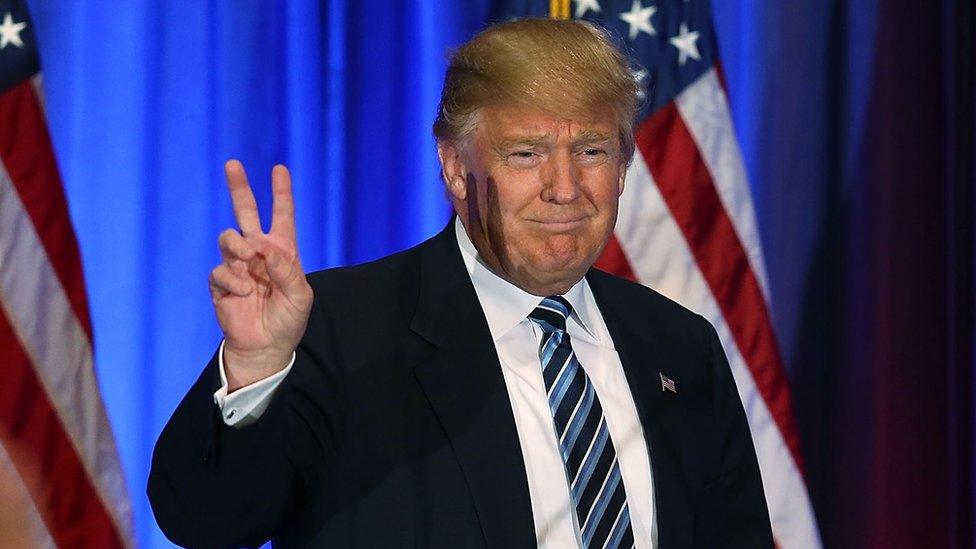
Trump wins the nomination outright
Donald Trump has a commanding lead in the race for the Republican presidential nomination and is the only candidate with a realistic shot of clinching the prize without a convention fight.
Still, his path to the magic number of 1,237 delegates is a narrow one that requires victories in winner-take-all states like Delaware and New Jersey, and strong showings in delegate-rich states like California, New York, Indiana and Pennsylvania.
For Mr Trump to secure the nomination he'll have to win more than half the remaining delegates.
He could fall slightly short of the magic number and still cross the finish line before the Republican convention's opening gavel if he can pick up the support of enough of the hundred-plus unpledged delegates, which include those from candidates who already dropped out or from states that don't holding nominating contests, as well as party officials.
If Mr Trump continues to see his head-to-head match-up numbers against potential Democratic candidates tank while he is buffeted by controversies and conflagrations, however, such a consolidation of support grows less likely.

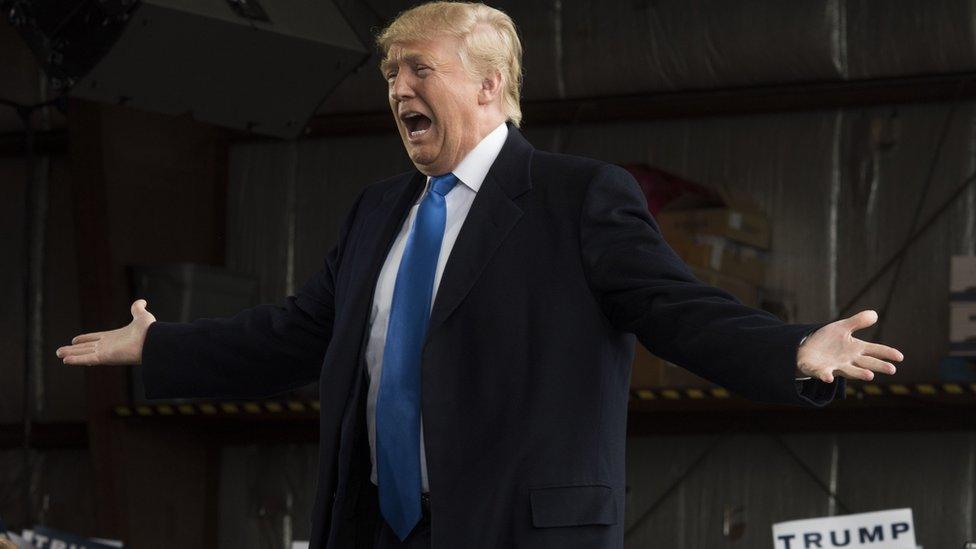
Trump wins the nomination in an open convention
Even if Mr Trump enters the convention without enough delegates to secure the nomination on the first round of voting, he could still end up the Republican standard-bearer.
If he holds a sizeable lead in the delegate count and can point to the support of millions more Republican votes than the next closest candidate, it may be too difficult for his opponents to deny him the nomination. Rallying behind Mr Trump, no matter how ill-fated his candidacy may seem, could be the best move for the long-term health of the Republican Party.
On Tuesday Mr Trump announced that he has assembled a team of operatives knowledgeable in back-room party politics who will manage his convention war room. Paul Manafort, who heads the operation, is a veteran of the past Republican conventions - including the 1976 event in which President Gerald Ford entered without enough delegates to secure the nomination.
"Paul Manafort, and the team I am building, bring the needed skill sets to ensure that the will of the Republican voters, not the Washington political establishment, determines who will be the nominee for the Republican Party," Mr Trump said in a statement, external announcing the move.
It may be a bit late, but the front-runner is forming his convention battle lines.

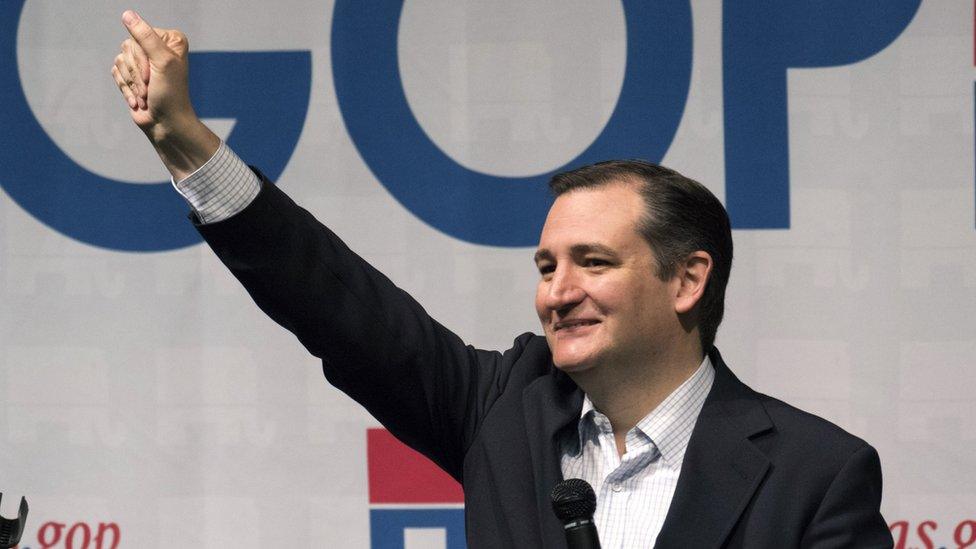
Cruz wins the nomination in an open convention
Last week the Wall Street Journal reported, external that even though Mr Trump won the Louisiana primary, his closest rival, Ted Cruz, could emerge from the state with more delegates, thanks to the intricate, often Byzantine rules governing the Republican delegate selection process. It's also why Mr Cruz could end up the eventual party nominee at an open convention.
Mr Cruz has been making contingency plans for a convention fight practically since he launched his campaign more than a year ago. While his expected opponent, Jeb Bush, crashed and burned, the strategy remains the same - to ensure that he has the upper hand if no one has a majority come convention time.
He apparently has been successful in winning over uncommitted delegates in Louisiana, as well as those who had supported the now-suspended campaign of Marco Rubio. If Mr Cruz can repeat this process in other states, he could finish much closer to Mr Trump in the delegate count than his popular vote totals would suggest. In addition his campaign has sought to place friendly delegates on key committees that control convention rules and resolve delegate credentialing disputes.
Then there's the prospect that Mr Cruz could target delegates currently pledged to Mr Trump. Although they're required to support the New Yorker on the first ballot at the convention, many effectively become free agents in subsequent rounds of voting. Just because a delegate was originally pledged to Mr Trump doesn't mean they will stay that way.
Although campaigns select their delegates in some states, in others the delegates are party officials who may not be sympathetic to Mr Trump's anti-establishment rhetoric. Mr Cruz's team could also instruct loyalists to surreptitiously pose as Trump supporters in the hope of being selected as Trump delegates.
In the murky world of convention politics, what's permissible may not always be what's the most fair.

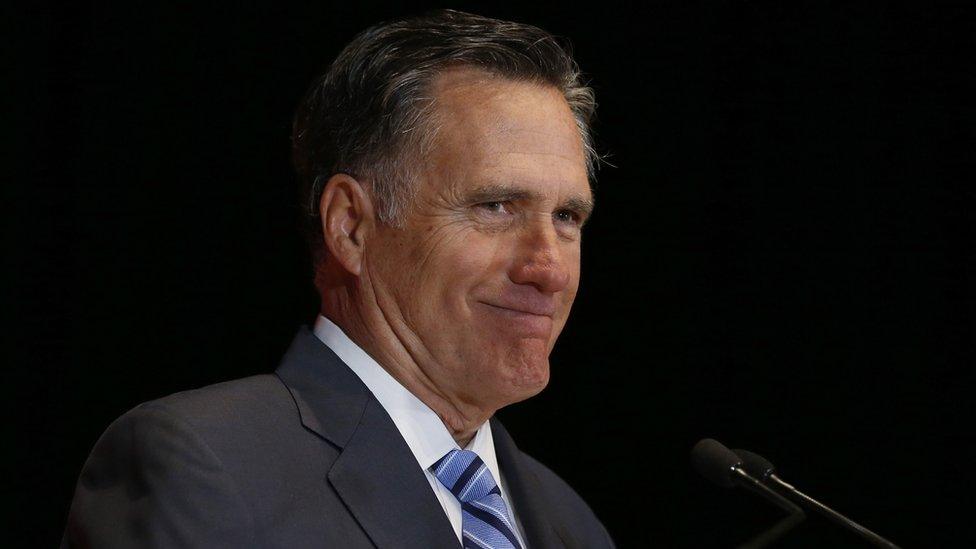
Could Mitt Romney be a Republican stealth candidate?
Someone else wins the nomination in an open convention
Republicans at their 2012 convention implemented a rule that a candidate has to win a majority of the vote in at least eight states in order to become the party's nominee. Rule 40, as it's called, would guarantee that the 2016 standard-bearer will be either Mr Trump or Mr Cruz, barring a miraculous comeback by Ohio Governor John Kasich.
Today's convention rules can be scrapped in July by the 112-member rules committee, however. If neither Mr Cruz nor Mr Trump can wrangle the support of a simple majority in a nomination vote, delegates could go looking for someone else to step in. And while Rule 40 would stand in the way, any prospective candidate who has enough votes to win would probably have more than enough support on the rules committee to open the door.
So fans of Mr Rubio or Scott Walker may not want to give up hope just yet. Miss 2012 nominee Mitt Romney? He could make a return appearance. Paul Ryan, the reluctant House speaker, has ruled himself out.
If Mr Trump and Mr Cruz continue to drag each other deep into the political muck and look like general election poison, the convention could start searching for a white knight.

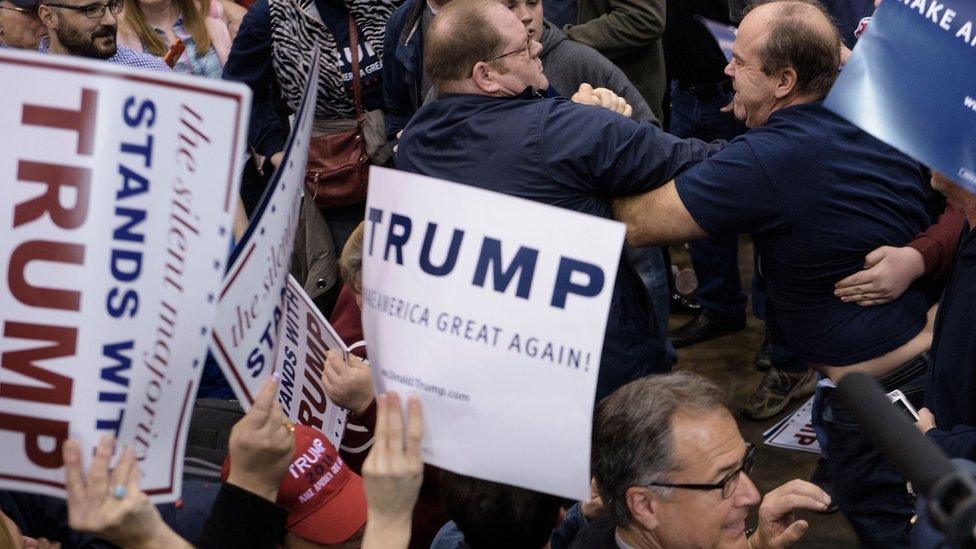
The party fractures
Republican Gotterdammerung. Twilight of the Grand Old Party. If things go badly at the convention, acrimony could turn into outright civil war. Such a possibility has been theorised in the past, but this doomsday scenario is closer than at any time in modern political history.
If Mr Trump wins, a faction of #NeverTrump conservatives could bolt and run a true believer as an independent presidential candidate. This would likely put some traditionally Republican-voting states at risk and do little to dent Democratic states. It also may at least encourage the party faithful to show up on election day and keep down-ballot candidates from getting swamped in anti-Trump fervour and handing control of Congress to liberals.
If the nomination is wrested from Mr Trump at the convention - either by Mr Cruz or a mystery nominee - he and his loyal followers could stage their own walkout. Mr Trump has predicted a "riot" if such a development unfolds, and he recently rescinded his promise to support the nominee if he's not the man. Once free of the party, Mr Trump could decide to make an independent run in the autumn.
These scenarios are complicated by the fact that a prospective candidate must apply for ballot access on a state-by-state basis, external, and the deadlines for 11 states - including Florida, Illinois and Texas - will have passed by the time the Republican convention is held in late July. Many of the other states have onerous petition-gathering requirements that would require considerable time and effort to meet.
California's deadline is 12 August, for instance, but getting on the ballot requires gathering the signatures of 178,039 registered voters.
A candidate could stage a write-in campaign in states where the deadlines are missed, but such efforts are usually futile.
The end result of these scenarios is likely an easier victory for the Democratic candidate and Republican fratricide that continues for years. It's not so much an end to the Republican bloodbath as the start of a new, more gruesome chapter.
- Published22 March 2016
- Published2 March 2016
- Published14 December 2015